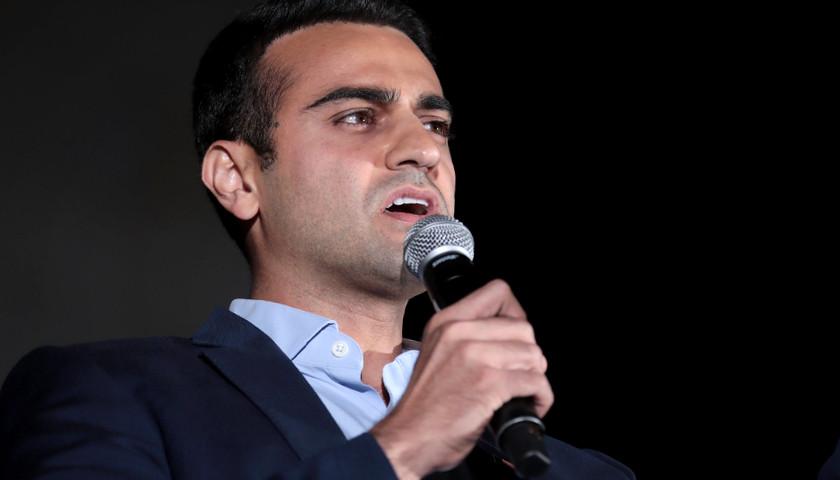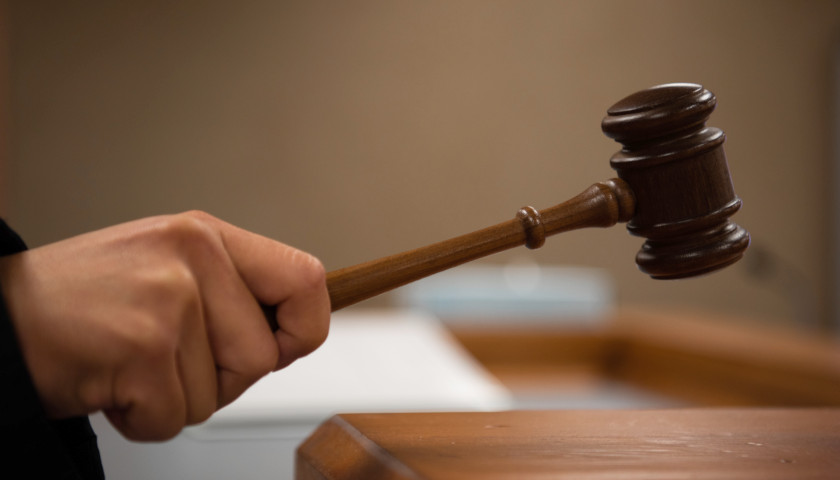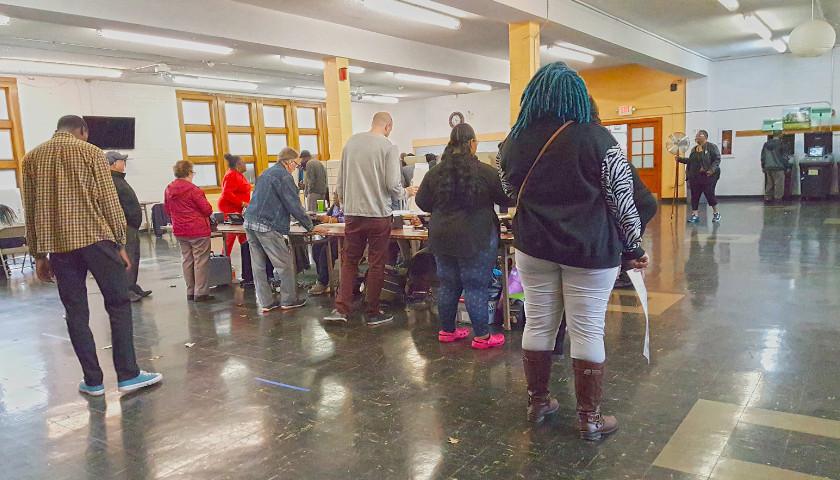Mohave County Superior Court Judge Lee F. Jantzen denied Abe Hamadeh’s request for a new trial in his election contest over the attorney general’s race on Friday, issuing his opinion with the reasoning on Monday. He said “the evidence showed that only about six votes difference would have been found after reviewing the numerous undercounted ballots.”
Hamadeh issued a statement shortly afterwards, “The court’s ruling is an invitation to an appeal, and we will do just that.” He added in a tweet, “I have every confidence that the (Arizona) Supreme Court is not going to let this precedent stand. It would be a terrible precedent in terms of the legal community to have the government be able to withhold evidence & get away with it.”
Hamadeh wanted a new trial after his team discovered following the trial that up to 76,339 “undervotes” were not counted in the election. Then-Secretary of State Katie Hobbs withheld evidence of undervotes in Pinal County, which led to Kris Mayes’ lead shrinking to only 280 votes over Hamadeh, making it the closest statewide race in Arizona history. Hamadeh’s team wanted to investigate undervotes in all of Arizona’s counties.
In a five-page decision, Jantzen said, “The Arizona Constitution gives the Arizona legislature the right to make the rules concerning elections and they have created specific rules to handle election contests.”
He agreed with Hobbs withholding the evidence from Hamadeh until after the trial had concluded. Hobbs claimed that an election judge’s order prohibited her from releasing the information about the uncounted ballots, but the judge’s order only applied to county officials, not state election officials.
“The Court finds the Defendants did not violate any discovery rules in this case by following the order of the Court in the recount case not to disclose findings found in the recount,” Jantzen declared. “The Court further finds that the evidence of the Pinal County errors would not be sufficient to be more than speculation about other errors for which there is no proof.”
He said that Hamadeh “provided no significant evidence of specific problems at the trial on the merits” regarding the possible 76,339 undervotes. However, during the trial, Hamadeh’s counsel Jennifer Wright, who served as the Election Integrity Unit civil attorney for the Attorney General’s Office, addressed that. She said the hundreds of disenfranchised voters “can come into court and testify and be cross-examined.” She added, “We haven’t submitted evidence since that’s what a trial is for.”
Jantzen dismissed the finding, “Plaintiff speculates that this error was repeated in other counties but has no proof,” he stated. He said Hamadeh was not entitled to additional discovery to investigate the ballots since A.R.S. 16-677 doesn’t permit it. Section (A) of that statute provides, “After the statement of contest has been filed and the action is at issue, either party may have the ballots inspected before preparing for trial.”
Jantzen claimed that the statute had already been satisfied during discovery in the first trial. He added, “The only discovery allowed in these contested elections is a limited inspection of ballots which was done prior to trial.” However, the statutes don’t require a limited inspection.
He also cited A.R.S. 16-676, which states that an election contest trial shall be held “not later than ten days after the date on which the statement of contest was filed.” However, although A.R.S. 16-676 restricts the timing of the trial, it doesn’t contemplate retrials, which are ordered by judges frequently in the court system. New discovery is allowed in a retrial.
The judge noted Arizona Rule of Civil Procedure 59 dictates the process for awarding a new trial. He specifically cited A), any irregularity in the proceedings or abuse of discretion depriving the party of a fair trial, D), newly discovered material evidence that could not have been discovered and produced at the trial with reasonable diligence, and part of (F),other errors of law at the trial or during the action.
The decision declared that there were no irregularities, and said that evidence of uncounted provisional ballots could have been discovered at the time of the trial. Without citing how, he asserted that it “was discoverable in November and December with sufficient diligence.” He cited the law, “In order for newly discovered material to be allowed in a new trial it must be found that the evidence is 1) material, 2) existed at the time of trial, 3) could not have been discovered by due diligence, and 4) would probably change the result.”
Hamadeh also wanted a new trial based on reports from many voters that their provisional ballots were never counted. His team heard from 1,100 Maricopa County voters who found their votes were “erroneously rejected.” Most of them discovered that their voter registration had mysteriously been changed to another county before the election, forcing them to vote a provisional ballot, which was not counted. These were high-propensity voters who had voted in 2018, 2020, and some even in the 2022 primary. They all had a piece of property in another county, and their voter registration was changed to that county without their knowledge or permission, “violating due process.”
Jantzen dismissed those voters, “[I]t is still speculation to say that the difference in votes would have been made up with further discovery.”
Finally, Judge Jantzen minimized the significance of Hunt v. Campbell, the 1917 case where the Arizona Supreme Court overturned a gubernatorial election due to fraud over a year later. He said that there weren’t any statutes in place at that time addressing election challenges. However, he did not cite any other statutes, referring, apparently, to A.R.S. 16-677 again. “[T]he Court finds Arizona election contest statutes do not contemplate additional discovery in election cases after the trial on the merits,” he repeated.
– – –
Rachel Alexander is a reporter at The Arizona Sun Times and The Star News Network. Follow Rachel on Twitter. Email tips to [email protected].
Photo “Abe Hamadeh” by Gage Skidmore CC2.0.





